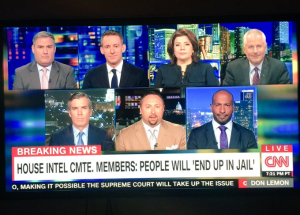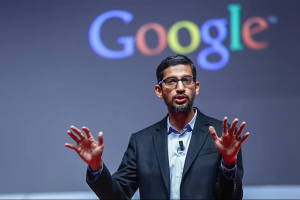
It’s that media still hasn’t accepted the reality of the Internet.
In the year 2022 book companies still think they’re selling paper books. Newspapers still think they’re selling paper news. Magazines still think in terms of print. TV still thinks in terms of how TV was distributed before the Internet.
It’s done to preserve the appearance of monopoly. Eyes remain closed to the challenges, and the opportunities, of the Internet.
Take CNN. Even their critics have it wrong. The critics are worried about new commentators shoving right-wing politics down the throat of the public.

CNN considers itself an arbiter, a gatekeeper. It didn’t go with the Izyum story until it was confirmed by the other side. That means treating Russian propaganda as legitimate despite the fact it’s nothing but lies.
If I were running CNN, I’d get back Ted Turner’s deals with local TV stations. I’d funnel hand-made videos directly to broadcast if they were good. I’d use the whole Internet as a news source and use my people to vet it in real time. I wouldn’t limit myself to the broadcast, either. Create live online channels for every breaking news story, using the cable channel just for the best. And no more talking heads.
If you’re missing the story, I’m not going to get my news from you. At the heart of the word news is new. Gatekeeper isn’t there. Arbiter isn’t there. Give me news or let me go. The Internet does that and, if I must arbitrate on my own that’s what I’m going to do. So are others.

The only way forward in local news is to do it online and use everything the Web gives you. That means video, live video if you can get it. It means crowdsourcing. It means newsletters delivered to inboxes defining your reach. It means podcasting local meetings, not just writing about them afterward. It means involving your audience in your process. That’s how you generate loyalty. And loyalty, to your product, is how you build your business.
I was preaching this kind of thing almost 30 years ago, as the Web was spun. I was ignored because I was just a writer. All right. I’m just a writer. But I was right. And I’m still right.










